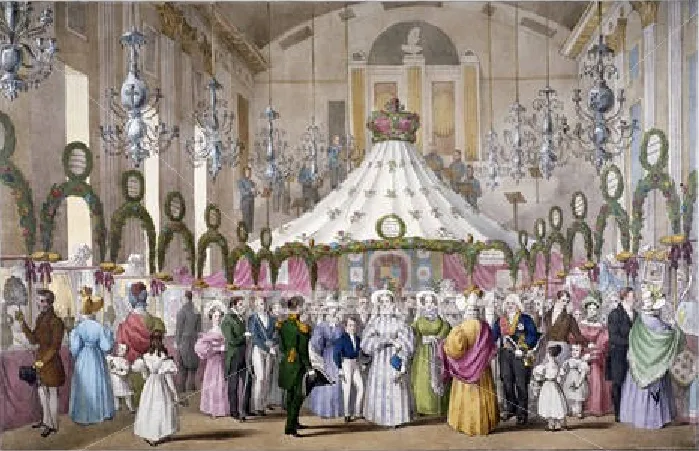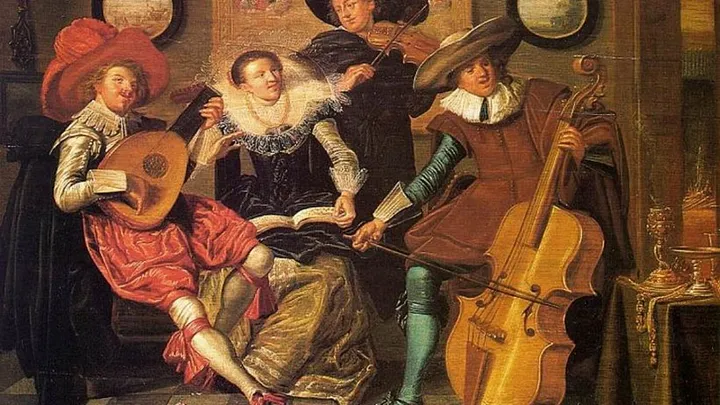The world of music is having a tough time as it is with piracy perpetually pummelling musicians’ incomes in the background, while the more legitimate sources such as spotify shaft musicians are hard as they can possibly get away with.
Many record labels are essentially coercing musicians to their will, and AI is threatening to eliminate the need for a musician entirely beyond being an image, a personality.
So when I think how there is still a massive, class-based culture of gatekeeping undulating beneath it all, I just want to crush some skulls.
Admittedly, I have a long-term personal grudge after my time in university way back in 2006–2009, where I, a ‘greebo’ of sorts (kind of half-goth, half-punk I guess?), did my music degree among a bunch of violinists and pianists who had been playing bach and paganini since they day they learnt to swallow warm mush from a spoon. They all had good posture and expensive clothes. In the middle of the lecture hall was me, in ripped jeans and one of the few satanic hoodies I had money to buy.
I remember them sniggering at me, telling me to ‘Go back to rock school’, and laughing me into humiliation as is mispronounced ‘Shostakovich’ as ‘Shoss-TACK-o-vich’ having never heard is spoken before.
Well, long story short, I studied my ass off and they ended up being made to perform MY compositions on stage. Felt good.
My grudge for the music snobs is a small but core part of who I am. I’d say I’m somewhat qualified to dissent against the musical elite.
So here’s part one of three on the myths in the musical world used among the gatekeeping snobs to keep you out of their realm, after which, you can dismiss it and join in entirely your own way, because, spoiler alert, music can be whatever you want it to be, and like a milky cup of tea, you can enjoy it however the hell you want!
Applause
Have you ever been to a posh concert to see, say, Beethoven or Chopin? Perhaps it was just a single special occasion to see what it was like, or perhaps you do it on the regular as a Londonite elitist yourself. Either way, you’ll have noticed how there’s always this feeling in the air, this unwritten rule that everybody should inherently understand prior to entry, that between movements of a piece you DO NOT applaud.
If you are the unlucky one caught out for applauding when the music stops, when to your surprise, it was not actually the end of the piece, you are a PLEBIAN MORON and everybody around you is silently mocking your disgraced visage. You ONLY applaud at the end of the 3 or 4 movements!!! Clearly, you’ve only been exposed to Taylor Swift and Ed Sheeran whose music stops at the end. How primitive.
Well, as it turns out, the whole idea is pretty bullshit. Back in the day, it was quite normal for an audience to applaud at the end of each movement. The composers of the time by and large loved this and simply expected it. Not only that, but it was quite the norm for the audience to be talking throughout the performance. I mean, it shows appreciation. It’s not that shocking.
Things would go even beyond this, with spontaneous applause occurring pretty much whenever people felt the emotional urge to do so. If a movement was sufficiently great, a repeat of that movement alone was commonly performed!
Sometimes, like with composers such as Liszt (often dubbed the first rock star for his irresistible charm for the ladies), he might have depended on such norms in order to invigorate his performances, where he would supposedly play so roughly on the piano he would destroy it, and (having had this prepared in advance as part of the dazzle of the show) before having a new one wheeled in.
What people don’t often realise is that during the Baroque and Classical periods where many of these most notable musicians were alive, they did not have access to vast, multi-thousand seat concert halls.
Hanover Square Rooms in London was renovated from its previous purpose as a mill by none other than Johann Christian Bach in 1774 (demolished in 1900). No, Not Sebastian. His youngest son! It was perhaps the first musically dedicated concert hall with a capacity of about 800, and one of very few in the European continent.

Some older examples include Oxford’s Holywell Music Room built in 1748, but like most places, it was mixed use, such as for auctions and exhibitions.
For the vast majority of musical history, performances were instead performed in far more intimate environments. Churches, royal courts, and personal, aristocratic venues. The ensembles were necessarily significantly smaller, just a handful of musicians in the corner of a cosy room, basically.

So why on earth do we police clapping in large, silent halls nowadays, when this was contrary to the status quo throughout history?
Well, you can read about it in greater detail here, but in short, towards the 19th century, these concerts became open to the public and suddenly there was an influx of a kind of ‘hired sycophant’, paid to clap for certain performers. Various composers such as Mahler found it pretty cringe, complained, and established the new ruleset ever since. Mendelssohn even started composing attacca into his music, the instruction to immediately begin the next movement, to prevent it.
But we don’t have paid clappers anymore. It’s just stuck ever since. But to mock and deride people for naturally wanting to express themselves between movements is just unnecessarily snide and sneering. Often, I can just feel this thick aura of people around me, an audience of smug faces, joyous in the knowledge they didn’t ‘mess up’ by clapping. Call it projection, I dunno.
But I sometimes want to clap! Other times, I want to relish in the continued emotion of the story being told. it depends. I just feel like there are some more obvious benefits to allowing some applause between movements. For a start, people who are new to classical music are, frankly, going to clap by ‘mistake’ anyway. So why not hide the awkwardness by joining in?
But more important to me is that it gives a moment of relief to the room. People desperately holding back coughs, or sitting with monstrous back pain because they were too scared to move in their squeaky seats, or children and elderly who need to sneak out to get to a bathroom asap. It could all be a far less stressful environment being broken up with bouts of cheering. Most of all, it’s telling the performer that the vibe is good. We are enjoying the show, keep it up, get energised, you rock!
Sure, there are some multi-movement pieces of a dark or tragic temperament which deserve a moment of silence more than the clapping of hands, but I think we can leave it to the individual to read the room and just chill. Or even better, tell the audience your wishes before each performance. I’m sure a lot of performers would love a more relaxed environment.
Really, the clapping rule just makes the experience feel too posh for your average Joe who just want to experience something new and cultural. We love to share our emotion, so let us be as the elites once were.
Ok that’s it for now. Part two of three coming soon!

